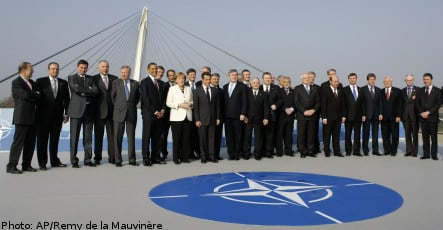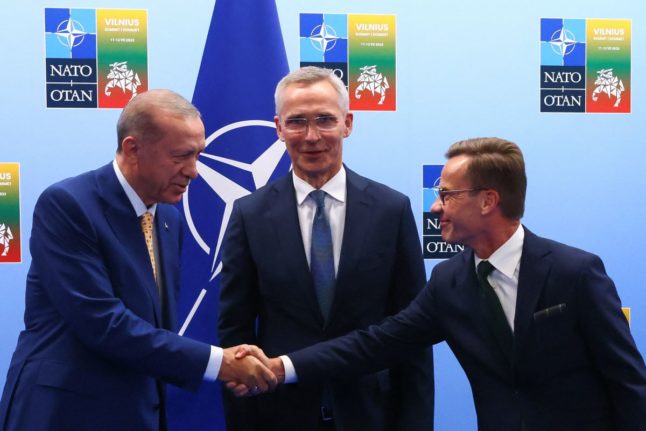Since 2004 the number of Swedes opposed to joining NATO has declined by nine percent, according to a Sifo poll, published in Svenska Dagbladet on Saturday.
Every other Swede is against joining NATO.
Those in favour of joining has increased from 29 percent in 2004 to 33 percent in the recent poll. 17 percent remain unsure.
Toivo Sjörén thinks that increased support for NATO is due less from a Swedish fear for their security and more due to the “NATO issue” become less controversial.
Sifo interviewed 1,000 people.
A further Som survey, conducted by Gothenburg University and published in Dagens Nyheter, also indicates an increase in support for joining NATO.
According to the poll 24 percent of Swedes now back joining, in comparison to 19 percent in 2007. 41 percent are against joining, a decline from 44 percent in 2007. 35 percent are unsure.
The Som survey also charts Swedish attitudes towards the defence forces.
In 2007 25 percent expressed high confidence in the defence forces, in 2008 this figure had declined to 16 percent.
Those expressing some confidence amounted to 27 percent of those surveyed in 2007, and 38 percent in 2008.



 Please whitelist us to continue reading.
Please whitelist us to continue reading.